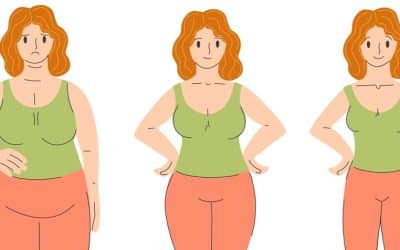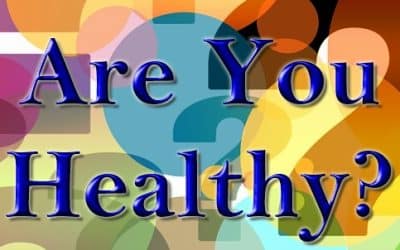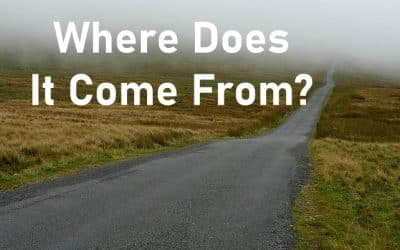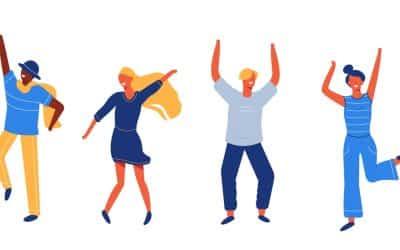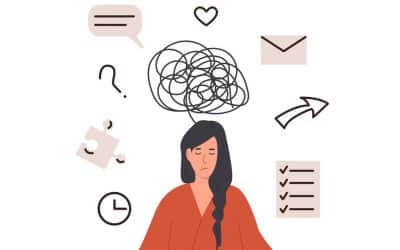Nutritional Challenges of Vegetarianism
It is not my intention to create conflict or “convert” anyone from being a vegetarian/vegan. I am here to offer extensively researched, scientific facts about the nutritional challenges of vegetarians/vegans so that you can make informed eating decisions that hopefully will help you to become a healthier vegetarian.
Also some people become vegetarians because they cannot handle digesting animal protein or fats. There is a lot of research that indicates that this type of vegetarian has a nutrition deficiency and/or insufficient adrenal function that can be corrected. If you happen to fall into this category of vegetarianism, you may want to pay particular attention to the nutritional deficiencies section of the article.
There are three concerns that I have with the vegetarian/vegan diet:
- Getting complete proteins: There are very few plant-based foods that are a complete protein. It is necessary to consume high quality complete proteins in order for your body to utilize it. Protein is a very important nutrient, read more about why you need it here, Eat your Protein! Stay Healthy!
- Getting enough protein: Unfortunately, proteins in plant-based foods are lesser in quantity and quality than animal-based proteins so consuming enough daily protein means you need to eat more food, which means more calories. This can be a real problem for calorie counting individuals.
- Nutritional deficiencies: Sadly, the foods that most vegetarians/vegans eat to substitute animal protein, such as soy, whole grains, rice, seeds and nuts are contributing to nutritional deficiencies.
Getting a Complete Protein
It is very important for everyone to consume high quality, complete proteins, and in enough quantity. (See Eat Your Protein! Stay Healthy!) Vegetarians have more difficulty accomplishing this because most vegetables, fruits, grains, nuts and seeds do not have all 8 essential amino acids, or they may have all of them but at levels too low to be effective.
If you are an ovo-lacto (eats eggs and dairy) vegetarian then you are getting complete proteins in the eggs, milk and cheese that you consume. However if you are a vegan (one who avoids all animal-based foods) you need to achieve optimal nutrition by combining foods to make a complete protein. To do this, you must become knowledgeable on essential amino acids in plant based foods and how to combine those foods correctly.
Many people consume whole grains, nuts, seeds and legumes to get their proteins. I believe that many people rely on whole grains too much as a source of protein and recommend that my patients keep grain consumption to a reasonable amount. I believe that the optimum ratios of protein, fats, vegetables and fruit are similar to the Mediterranean-type Diet, which is roughly:
- 70% protein, fats and vegetables
- 20% complex carbohydrates (whole grains, bread and pasta made from whole grains)
- 10% fruit
Some patients are allergic to certain grains and have trouble digesting them or react to them. This can also contribute to nutritional deficiency. So I always caution my patients about relying heavily on grains.
Here are some sources of complete proteins from both animal-based foods that a vegetarian might eat and plant-based foods that a vegan might eat:
Sources of plant-based complete protein:
- Hemp
- Quinoa
- Amaranth
- Buckwheat
- Micro algae such as
- chlorella & spirulina
Note: Soy beans and products are advertised as being a complete protein. I and many scientists and nutritionists disagree. Read Soy is not your friend for more information on why I don’t recommend that you eat soybeans and soy products.
Vegetarian sources of animal-based complete protein:
- Free range eggs
- Dairy products (preferably raw and organic) although these are good protein sources, dairy products can also be high in saturated fats and as animal proteins they are acid forming in the body. For optimal health, avoid relying on these and include complete and combined plant proteins in your diet.
Combining Plant-Based Foods To Get a Complete Protein
To combine proteins correctly you need to know what plant-based foods contain what essential amino acids. Combine those foods together and you then have a complete protein. The chart below shows examples of three groups of foods that contain proteins. If you combine your proteins from any 2 of these 3 groups, you can get a complete protein:
|
Whole Grains |
Nuts & Seeds |
Legumes |
|
|
|
Here are some examples:
- Beans on wholegrain toast
- Brown rice or millet with vegetables and bean curry
- Chickpea hummus on rye cracker
- Stir-fry or steamed vegetables with rice noodles and cashew nuts
Can You Get Enough Protein Being a Vegetarian?
Sure you can. However, because protein levels are much lower in plant-based foods, a much larger quantity of food is required to meet the daily recommended levels. I’m going to lay out some facts and you can decide if you could consume enough protein in a single day from these sources:
Let’s say you are trying to consume 75 grams of protein/day, an amount recommended for an average individual (note not all people can or should consume this much). And you are going to get that by eating black beans and brown rice.
Nutritional information of black beans and brown rice:
| FOOD | AMOUNT | CALORIES | PROTEIN (grams) |
| black beans | ½ cup | 113 | 7.6 |
| brown rice | 7/8 cup | 112 | 2.32 |
Combining the two together the nutritional values roughly are:
| FOOD |
AMOUNT |
CALORIES |
PROTEIN (grams) |
|
black beans and brown rice |
1 ½ cups |
225 |
10 |
To consume 75 grams of protein you would multiply the 1 ½ cups of food by 7.5. Giving the total nutritional value:
|
FOOD |
AMOUNT |
CALORIES |
PROTEIN (grams) |
|
black beans and brown rice |
11 cups |
1687 |
75 |
So just to reach the required protein level, you need to consume 11 cups at 1687 calories! That is a lot of calories, and a whole lot of food, compared to a 4 ounce chicken breast:
|
FOOD |
AMOUNT |
CALORIES |
PROTEIN (grams) |
|
Chicken breast |
4 ounces |
193 |
29.3 |
Consuming 75 grams the nutritional values would roughly look like this:
|
FOOD |
AMOUNT |
CALORIES |
PROTEIN (grams) |
|
Chicken breast |
10 ounces (about 2 cups) |
482 |
75 |
So yes, you can get enough protein but you would need to consume large amounts of plant-based foods that will significantly increase your caloric intake. This could be very problematic if you are trying to lose weight.
Nutritional Deficiencies And Vegetarianism
There is mounting evidence indicating that diets relying heavily on plant foods come with nutritional challenges, such as fatty acid imbalances (affects the skin, hair and nails, compromises the immune system and contributes to learning problems), B6 and B12 deficiencies and consuming too many phytates (phosphorus compounds found primarily in cereal grains, legumes, and nuts. They bind with minerals such as iron, calcium, and zinc and interfere with their absorption in the body).
Also, Vitamin B12 is only found in animal-based foods. Vitamin B12 is needed for energy production, nervous system functions, prevention of pernicious anemia (this condition can lead to serious problems with the heart, nerves, and other parts of the body), blood cell formation, heart health and protein utilization.
The Copper-Zinc Imbalance
Copper is an essential trace mineral, but the body only needs a very miniscule amount. It works in a “paired relationship” with zinc. A much larger amount of zinc is needed to balance the copper zinc ratio. Copper is widely available in unrefined foods, but zinc can only reliably be found in optimum amounts from animal-based foods, mostly from eggs and red meat. If zinc is present in abundance and there is enough quality protein and fats available, any excess copper can be excreted easily through the bile. Interestingly, most vegetarians in their attempt to be healthy avoid red meat and fats! They tend to have higher copper levels than meat and egg eaters.
If you do not have this perfect environment, then copper builds up in your tissues. This excess interferes with many body systems, the liver and digestion in particular, impairing bile production and digestion. This in turn makes it difficult to eat meat and fat.
Whole grains contribute to the copper-zinc imbalance. The phytates (a compound that is often referred to as the “anti-nutrient”) found in whole grains, legumes and nuts interfere with zinc absorption, while copper which is less affected by phytates is absorbed freely. So copper gains in the copper-zinc ratio when consuming these foods. Copper is so readily available in our environment that you also acquire it through copper piping and many over-the-counter multi-vitamins. Birth control pills and other medications actually increase the retention of copper.
Blanching (briefly boiling, then chilling) vegetables before commercial freezing removes the zinc. Zinc is also lost when we are under stress—the higher the stress the higher the loss. However, zinc is one of the minerals needed in very large amounts by the adrenals to combat the stress!
So why is this important? A zinc-deficient person starts to lose their coping resources. Chronic fatigue syndrome is associated with a zinc-copper imbalance. Other health issues include nausea, loss of appetite, abdominal pains, headaches, nervous exhaustion, emotional fragility, palpitations, depression, insomnia, yeast overgrowth, skin problems, anxiety, racing mind, PMS, panic attacks and chronic infections.
Copper-Zinc imbalance can force people into vegetarianism. Some people with very high copper levels dislike all proteins and crave high-carbohydrate diets. Eating protein feels heavy or causes symptoms. Actually, eating protein releases the stored copper which causes symptoms.
The adrenals also play a major role in forcing people into vegetarianism. Poor adrenal function impairs the ability to properly metabolize and utilize dietary protein and fats. Normal adrenal activity is needed to activate many of the liver’s digestive functions. So because the digestion system is impaired, eating fats and proteins produces a feeling of “heaviness” and abdominal bloating.
Nutrition deficiencies in general contribute to poor adrenal function. The reduced consumption of protein can also negatively affect the adrenals. Exhaustion of the adrenal glands results in an increased storage of copper in the liver which results in impaired liver function.
The inability to digest animal protein is extremely common in individuals with a high copper level and poor adrenal function. Eating grains, nuts and legumes in abundance contribute to high copper levels and not eating protein and fat contributes to poor adrenal function. See how this can become a vicious cycle?
Are You a Vegetarian And Tired All The Time?
Many vegetarians have a very low energy level, due in part to inadequate protein synthesis or excessive protein breakdown. You must consume an adequate amount of protein to enhance or increase thyroid activity. Inadequate thyroid activity subdues the ability to ignite the fuel that transforms food into energy.
Additionally, adrenal glands become exhausted because a high copper level prevents zinc from being available, which decreases the potassium levels. Potassium is needed to keep the adrenals functioning. Most vegetarians cannot keep potassium in the tissues because of a zinc deficiency. Optimal potassium levels cannot be maintained when there is a zinc deficiency. Vegetables and nuts are very low in zinc, so consuming them in abundance is not helping the copper-zinc imbalance.
I Hope That I Can Help You!
To sum it up, vegetarians, vegans in particular, have a big nutritional challenge. It’s unfortunate that what some believe to be healthy eating can actually be causing harm to your health, unless the right precautions and habits are observed.
If you are a vegetarian because you can’t digest meat and fat, there is help for you. There are lab tests that can be performed to check your copper-zinc ratio as well as your potassium levels. If you are in the Atlanta, Georgia area and would like my help, please give me a call and we’ll schedule you for an evaluation. 770-937-9200.
More Information
Eat your Protein! Stay Healthy! Protein is a very important nutrient that our body needs to function. Read more about what it’s needed to maintain good health. And determine how much you may need to be eating.
Mediterranean-Type Diet My recommendations for the proper ratios of proteins, vegetables, grains and fats.
Soy is not your friend An article explaining why I don’t recommend that you eat soybeans and soy products.
Articles from The Weston A. Price Foundation
The Weston A. Price Foundation is a nonprofit, tax-exempt charity founded in 1999 to disseminate the research of nutrition pioneer Dr. Weston Price, whose studies of isolated non-industrialized peoples established the parameters of human health and determined the optimum characteristics of human diets.
The Foundation is dedicated to restoring nutrient-dense foods to the human diet through education, research and activism. Articles that may be interesting to you:
Lose The Weight
[dsm_button button_one_text="Free Analysis" button_one_url="https://alternativehealthatlanta.com/health-test/" button_two_text="Become a Patient" button_two_url="https://alternativehealthatlanta.com/schedule-complete-health-analysis-2/" button_alignment="center"...
Are You Healthy? A Conclusive Answer
[dsm_button button_one_text="Free Analysis" button_one_url="https://alternativehealthatlanta.com/health-test/" button_two_text="Become a Patient" button_two_url="https://alternativehealthatlanta.com/schedule-complete-health-analysis-2/" button_alignment="center"...
Cause of Chronic Disease
[dsm_button button_one_text="Free Consultation" button_one_url="https://alternativehealthatlanta.com/health-test/" button_two_text="Become a Patient" button_two_url="https://alternativehealthatlanta.com/schedule-complete-health-analysis-2/" button_alignment="center"...
Exercise Should Be Fun
[dsm_button button_one_text="Free Analysis" button_one_url="https://alternativehealthatlanta.com/health-test/" button_two_text="Become a Patient" button_two_url="https://alternativehealthatlanta.com/schedule-complete-health-analysis-2/" button_alignment="center"...
What are the Causes for Women’s Health Issues?
[dsm_button button_one_text="Free Analysis" button_one_url="https://alternativehealthatlanta.com/health-test/" button_two_text="Become a Patient" button_two_url="https://alternativehealthatlanta.com/schedule-complete-health-analysis-2/" button_alignment="center"...
Is Your Thinking “Broken?”
[dsm_button button_one_text="Free Analysis" button_one_url="https://alternativehealthatlanta.com/health-test/" button_two_text="Become a Patient" button_two_url="https://alternativehealthatlanta.com/schedule-complete-health-analysis-2/" button_alignment="center"...

